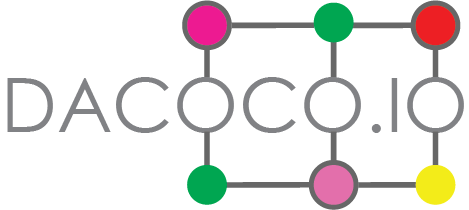How Open-Source Development is Breathing Life Into the World of Gaming
Although the term ‘paradigm shift’ is painfully overused, it perfectly describes the graduation from closed-source game development to open-source. Inaccurate though it may be to claim the era of proprietary game engines is over, the recent flurry of open-source technologies and games heralds a welcome new dawn.
Make no mistake, studios and developers who jealously guard their intellectual property (IP) still make great games. But the appeal of the open-source approach, which democratizes development and furnishes creators and players with continuous opportunities for innovation, is undeniable – and growing fast.
Open-source development transforms how games are created and maintained: by making software freely available, virtual environments become more transparent and accessible, enabling enterprising devs to audit what’s under the hood and contribute ideas, content, and features without starting from scratch.
A Communitarian Ethos
The term open-source is commonly linked to the world of web3, with any number of projects – blockchain networks, DeFi protocols, crypto wallets – allowing all and sundry to view, use, and change their code. It’s unsurprising, therefore, that many blockchain-based games have adopted this approach.
Community involvement is central to the open-source model, and this can manifest itself in many different ways – from a player identifying and/or fixing a bug that affects gameplay or building their very own game/character on top of the codebase. This collaborative ethos fosters a sense of ownership and engagement that closed-source games simply cannot hope to match, even if communities do often spring up organically around them.
It’s not just games that have been open-sourced either; it’s the modular tools required to build and maintain them, like the 3D creation suite Blender, which supports modeling, animation, and rendering among other functions. Tools like Blender, GIMP, Audacity, and Kriter provide game developers with powerful resources to create experiences that stand out in what is, after all, an increasingly competitive attention economy.
A survey of over 100 full-time game developers conducted by W4 Games demonstrates overwhelming support for the use of open-source software, with 87% indicating they often (70%) or always (17%) use it. 78% also stated their belief that open-source software has a “higher ratio of useful features” than proprietary software.
Open-Source in Action: Alien Worlds
An on-chain metaverse whose players explore and compete for resources on six unique planets, Alien Worlds is a fine example of open-source gaming. Not only can players accrue power and influence by being elected as Custodians to a planet-based DAO (known as a Syndicate), but they can leverage multiple API tools that allow them to access and build upon the game’s existing smart contracts.
These APIs provide rich data about things like game mechanics, Syndicate operations, and player interactions, and they can be used, modified, and assembled to generate any number of use cases. In short, the APIs function as reusable ‘building blocks’ intended to empower devs and players to expand the metaversal ecosystem without redundant development effort.
Recent months have seen multiple contributions uphold the open-source model. Developer Double Coconut’s creation of an open-source Unity SDK, for example, has drastically improved the mobile gaming experience for users of the WAX Cloud Wallet, a favored gateway to Alien Worlds and other decentralized applications (dApps). This SDK, which was built with support from the Galactic Hubs grant program, highlights the way in which open-source development can benefit the wider gaming community: spinoff projects like Battlefleet Armageddon and Milky Way Miner are actively leveraging it.
Speaking of games, an array of projects set in Alien Worlds’ wider metaverse are currently under development, including a first-person shooter called Siege Worlds and a turn-based strategy game named Alien Worlds Mayhem. Last year, the metaverse’s first community-run hackathon also produced eleven API-related submissions, with a prize pot of 1 million Trilium put up by Galactic Hubs. The appreciation for such publicly available tools is palpable.
For the Good of Gaming
Ultimately, open-source development represents more than just a new way to create games; it’s a tangible shift in how gaming communities interact with and influence their favorite titles. The next frontier of this evolution is likely to involve open-source generative AI tools that rapidly expedite the game-creation process itself, making it easier than ever to create a world within a world.
As projects like Alien Worlds demonstrate, this community-driven movement can create more engaging, sustainable, and innovative gaming experiences that benefit developers and players alike. Perhaps that’s one of the reasons why we’re seeing more capital flood into the web3 gaming space overall.
While closed-source game development is still alive, perhaps it’s on borrowed time.
